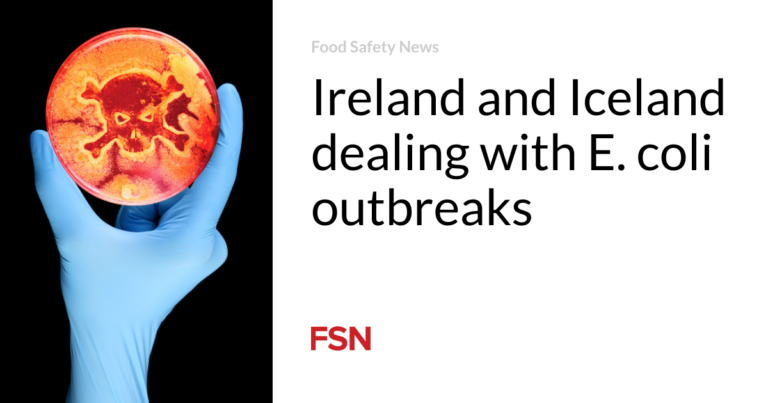More than a dozen people have fallen ill in Ireland, and many more have been recorded in Iceland from two different E. coli outbreaks.
Ireland’s Health Protection Surveillance Center (HPSC) reported that the community outbreak included 13 laboratory-confirmed cases of Shiga toxin-producing Escherichia coli (STEC) O157:H7. There were no cases of hemolytic uremic syndrome (HUS) or deaths.
An incident management team is established with representatives of all relevant stakeholders. The investigation is ongoing, but the source is believed to be food-borne.
So far, no cases of this epidemic strain have been reported in other European countries.
The Food Safety Authority of Ireland (FSAI) said at a recent board meeting that it had been a “busy” period as it had been involved in a number of infectious disease outbreaks.
But this was to be expected, given advances in whole-genome sequencing and the ability to link human disease and food businesses through food or environmental samples taken at specific locations.
In the first quarter of 2024, 116 STEC infections were recorded in Ireland. From April to June, 262 E. coli cases were reported, including 12 cases of hemolytic uremic syndrome (HUS). At least one of these was caused by the consumption of soft cheese made from raw milk.
In the second quarter of 2024, there were 17 outbreaks, affecting 60 people. The number of patients in each incident ranged from 2 to 18.
Latest information on Iceland
Meanwhile, an E. coli outbreak in Iceland saw the number of sick children jump from 10 to 23.
The children affected are from the Managarj kindergarten in Reykjavík’s Vesterbijl district. More than 100 children attend the center.
Landlaeknir (Directorate General of Health) said the source of the infection had not been confirmed, but it was suspected to be food-related.
A total of 27 children are currently being tested at the hospital. Both are in intensive care.
The kindergarten has been temporarily closed while the incident is investigated.
A PCR test was used to detect the infection, but confirmatory bacterial culture results are still pending. We have not yet received any samples from our employees.
The investigation team includes epidemiologists, the Icelandic Food and Veterinary Authority (MAST), the government research firm Matis, and the Reykjavík Public Health Agency.
In 2023, 14 people in Iceland were diagnosed with confirmed or probable E. coli infection. They included two children, ages 1 and 11, and 12 adults, ranging in age from 22 to 86.
(To sign up for a free subscription to Food Safety News, click here. )



